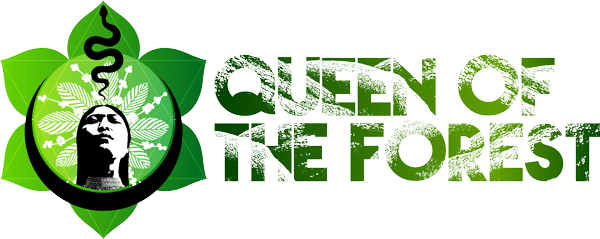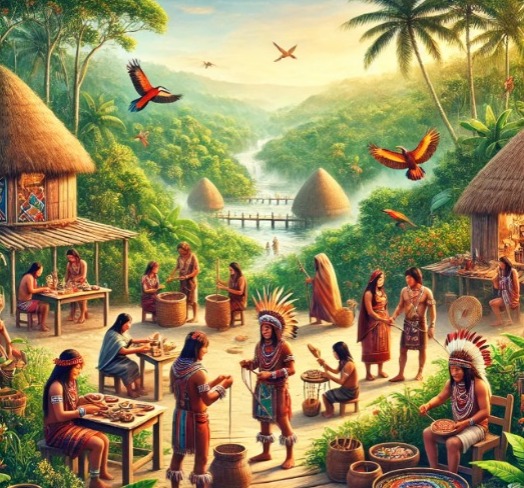Forest People, FOREVER THE FOREST
Amazon Tribes Economic Empowerment.
Why Economic Empowerment of Indigenous Tribes is Crucial for the Amazon’s Future
Economic empowerment of Amazon Indigenous tribes is a critical aspect of sustainable development and environmental conservation, with far-reaching implications for both local communities and the global community. This initiative not only supports Indigenous peoples’ autonomy and cultural preservation but also protects the Amazon rainforest, a vital resource in mitigating climate change and maintaining global biodiversity.
The Amazon rainforest is often referred to as the “lungs of the Earth” due to its critical role in producing oxygen and absorbing carbon dioxide. At its heart lie the Indigenous tribes who have lived in harmony with this environment for centuries. However, these communities face ongoing threats from deforestation, illegal mining, and exploitation. Economic empowerment provides a solution to ensure the sustainability of their way of life while preserving the Amazon.
In this article, we’ll explore the importance of economic empowerment for Amazon Indigenous tribes, its impact on global conservation efforts, and the steps necessary to achieve a sustainable future for both the tribes and the rainforest.
Why Economic Empowerment Matters
1. Preserving Indigenous Knowledge and Culture
Amazonian tribes possess invaluable knowledge of medicinal plants, sustainable agriculture, and ecological balance. This traditional knowledge, passed down through generations, is essential for modern conservation efforts. Economic empowerment ensures that these tribes can maintain their cultural practices while benefiting from modern resources.
2. Protecting the Amazon Rainforest
Indigenous territories often coincide with areas of high biodiversity. Empowering tribes economically reduces the likelihood of land grabs and deforestation by providing alternative income sources, making conservation a financially viable option for these communities.
3. Promoting Sustainable Development
When Indigenous communities are economically empowered, they can invest in sustainable projects such as ecotourism, organic farming, and the production of forest-based goods. These initiatives not only support local economies but also align with global sustainability goals.
4. Enhancing Global Climate Resilience
The Amazon rainforest is a global carbon sink, absorbing millions of tons of CO2 annually. By supporting Indigenous tribes in protecting their land, we contribute to the fight against climate change.
Key Strategies for Economic Empowerment
1. Supporting Indigenous-Led Businesses
One of the most effective ways to empower Amazon tribes is by supporting their entrepreneurial endeavors. Products like handcrafted jewelry, natural medicines, and ceremonial tools not only provide income but also showcase their rich cultural heritage.
2. Promoting Ethical Ecotourism
Ecotourism allows tribes to generate income while educating visitors about the importance of conservation. Programs led by Indigenous guides offer authentic experiences, such as traditional ceremonies, forest treks, and workshops on medicinal plants.
3. Expanding Access to Education and Technology
Education and access to modern technology equip Indigenous communities with the tools to compete in global markets. Training in digital marketing, sustainable agriculture, and artisanal crafts enables tribes to share their knowledge and products with the world.
4. Forming Partnerships with NGOs and Governments
Collaborations with non-governmental organizations and government agencies can provide funding, training, and resources for Indigenous-led initiatives. These partnerships help amplify the voices of tribes on a global scale.
5. Building Fair Trade Networks
Fair trade ensures that Indigenous communities receive equitable compensation for their goods and services. By eliminating exploitative middlemen, tribes can maximize their earnings and reinvest in their communities.
Case Studies of Success
1. The Yawanawá Tribe
The Yawanawá tribe in Brazil has successfully leveraged their cultural heritage to create sustainable income streams. Through partnerships with global organizations, they produce and sell traditional crafts and sacred medicines, including rapé and jewelry, while promoting their traditions.
2. The Shipibo-Konibo People
In Peru, the Shipibo-Konibo people are renowned for their intricate textiles and ceremonial art. By combining their traditional practices with online marketplaces, they’ve built a global customer base while preserving their culture.
3. Ecotourism in the Achuar Territory
The Achuar people of Ecuador have established community-run ecolodges that attract eco-conscious travelers. This initiative has not only provided income but also reinforced the importance of protecting their natural habitat.
Challenges to Economic Empowerment
While the benefits of economic empowerment are clear, several obstacles remain:
- Lack of Infrastructure: Many Indigenous communities lack access to transportation, electricity, and internet, hindering their ability to engage in global markets.
- Cultural Barriers: Balancing traditional ways of life with modern economic opportunities can be challenging for communities aiming to preserve their heritage.
- Exploitation: Unscrupulous actors may take advantage of Indigenous communities, leading to unfair compensation or cultural appropriation.
- Legal Disputes: Land rights disputes often hinder economic initiatives, as communities may not have formal recognition of their territories.
The Role of Consumers and Global Communities
The global community plays a crucial role in empowering Amazon tribes. By choosing ethically sourced products and supporting Indigenous-led initiatives, consumers can make a significant impact. Additionally, raising awareness about the struggles and achievements of these communities fosters greater global solidarity.
How to Get Involved
- Purchase products directly from Indigenous artisans or fair trade platforms.
- Support organizations that advocate for Indigenous rights and conservation.
- Spread awareness on social media about the importance of empowering Amazon tribes.
The Intersection of Indigenous Empowerment and Environmental Conservation
Economic empowerment is intrinsically linked to environmental conservation. When tribes have the resources to protect their lands, they act as guardians of the rainforest. This symbiotic relationship ensures the survival of both the Amazon and its inhabitants.
The economic empowerment of Amazon Indigenous tribes is a cornerstone of sustainable development and environmental conservation. By supporting these communities, we not only help preserve their culture and autonomy but also protect the Amazon rainforest, a vital resource for the planet.
Empowering these tribes requires collective effort—from governments and NGOs to consumers and businesses. Together, we can create a future where the Amazon thrives, ensuring a healthier planet for generations to come.
If you’re inspired to take action, explore Queen of the Forest’s collection of Indigenous-made products and learn how your purchase supports the preservation of the Amazon and its people.


